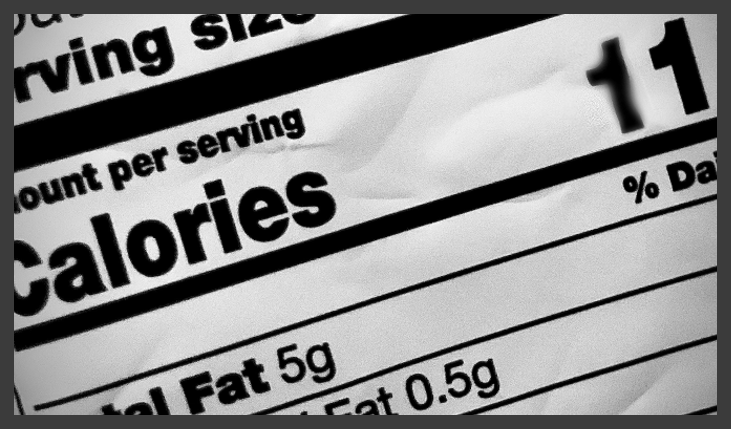“Calories I” continued:
Whether you like eating down the stream of cola to the familiar land of pizza or refreshing in the verdant fields of cherries and leaves, we all eat, so let’s get to it!
Now unlike some of you out there, I have been a consumer of food since I was a child, and eating is something that connects me to my nostalgic beginnings–ignore me. Food is something we all need. I am here today to continue with where I left off last week and share with you my knowledge. Take my advice at your own discretion, but I am being genuine from this point on.
Before I begin, I would like to say that many of these ideas and conclusions are observations and anecdotes that I have made or developed through experience. My intentions are to be informative not persuasive. While I will avoid bias, I am biased by what I have experienced. I am not a doctor and hold no official qualifications. In part, this exchange of ideas is for the me of the future to reference, but I know that you will have something to take away from this. I did not say this in the first part, but the same goes for “Calories I.”
Having said that, let us get into the meat and potatoes… yeah, I did that. One of the first things you have to realize before you try to make a lifestyle change or simply a diet change is that you are going to get it wrong at first… that is part of the process. If your goal is to become healthier (i.e, lose weight, feel better, live longer) your diet is going to be challenged numerous times. You will have to scrutinize your habits and reshape your perception of food continuously. While we all start at different points in our journey, we all make excuses and write narratives to justify where we are now. There is almost always a better version of you in reach. The best advice I can give you is to stick to your new habits long enough to make them a lifestyle and grow with them.
Although I did not have it written out like this (I had to figure it out along the way), I faced my own battle with obesity by developing the personal philosophy that I now live by: envision the change, consistently work toward the goal, learn from failure, adapt with new knowledge, and recognize growth. Each of these could be broken down into a whole paragraph, but this is an overview of my process for rising through challenges in my life. This is what I have learned, and applying it to many different aspects of my life, it has worked for me.
The days you waver and ultimately persevere are the days that define who you will be. There is always a reason to tell yourself “yes” or “just today,” but that day is the day you break any psychological fortification you had built.
Back to calories–
I mentioned intake and output last week. I wanted to add on to that: Caloric need is proportional to body mass (fat or muscle) and activity. I like to think of it like this: net calories = intake – passive functions – activity. “Intake” is all of the calories that we consume in a given day. Remember from last week, calories are not made equally, but, for most purposes, we will be okay to simplify them. “Passive functions” include everything our body does to keep us alive; this mostly includes autonomic body processes. Passive functions are mostly influenced by body mass but generally remain static. “Activity”is the sum of how much we physically and mentally “burn” calories. While this is a simplification, our body uses calories in many ways (e.g. locomotion, homeostasis, thermogenesis, growth/ recovery, cognition, ect.). This is where we account for a majority of our outs. There are no ways around science. Once food is consumed, no pill or special technique will make them seemingly vanish. We either control the input or the output. Exceptions can surely be found–they are not relevant today.
If you have ever looked at the amount of calories it takes to run a mile, you might be disappointed to know that it only takes a fun sized bag of chips. This is because a majority of daily calorie expenditure is slowly used throughout the day to keep us alive and functioning. Diet is the sum input. Muscular exercise is only a fraction of what the body spends its output on. Unless you are an athlete that trains multiple hours a day, this applies to you too. Because of this, the focus of anyone trying to change their body composition should be diet–calories in. This also means that time will always be a main factor in weight loss. Time is your best friend and worst enemy. Our bodies will take care of the fat for us if we give it the time to, but the patience and persistence required for this can at times feel defeating. We must stay consistent like… our life… depends… on it…
If you are not at the weight you want to be (this is great for people underweight too), a simple experiment that I suggest anyone do is to get a genuine average of your daily calories throughout the week, and then use an online calculator to determine an estimated amount needed to lose or gain weight. Make sure that you learn how to read a nutrition label, and then do your best to honestly measure every meal and every sauce or addition. The goal is not to change anything during this week. Just observe and learn. To make this easier, I would suggest buying a food scale that allows you to measure your portions in grams. If you like to eat out, many restaurants will post calories on their menu or website. It will be tedious, but I am confident that you will have an a-ha moment. Counting calories is not a new idea, but it can be intimidating–ignorance is bliss afterall. You should think of this not as a lifestyle change (although it might become that). This experiment only needs to last a week for you to gain significant data about where your habits are and expose you to ways you can possibly improve your diet. Reference the philosophy above if you find it helpful. This is simply giving you the knowledge you need to adapt. Ideally, it is best to become attuned to your body’s needs and intuitively know how many calories various foods contain–this comes with time and practice. This is only an idea of course. Worst case scenario, you now have a food scale, and you lost a week of joyful eating. What is the best case scenario?
I recently learned about neuroplasticity. What an inspiring scientific understanding. We do not know how capable we are until we meet our future selves—until we meet the consequences of our actions. This concept perfectly aligns with the self improvement side of weight loss and body transformation, so I wanted to mention it. I will continue this conversation in another week.
This has gone on too long again, and I have more to say. I am going to be kicking myself over this all week now… How could I let this happen again? Silly me I guess…
Am I being as concise and organized as possible? Absolutely not! This is my world. Ha Ha!
There is more that I want to say… till next week. As always, this has been Tristan from HQ. I will catch you next week!
This would be a great time to try that one thing he mentioned… Just one more bite…


